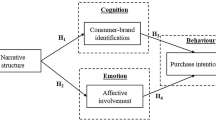Abstract
This study explores how reflexivity contributes to the continuation of value creation for consumers throughout consumption journeys. Reflexivity is awareness of the self within the world. Our study establishes a framework for studying consumption journeys centered on progressive engagement with a practice—in this case surfing—over time. We discover that reflexivity manifests in consumption journeys in an iterative, recursive manner—i.e., recursive reflexivity—tacking between identity (mis)alignment (with dominant institutions) and reflexive outcomes, such as imitating, improving, adapting and reconciling. Our findings reveal that recursive reflexivity contributes to the continuation of value creation in consumption journeys by fostering practice continuity—i.e., immersion, adaptation, innovation and/or dissolution of a practice—which provides opportunities for enhanced consumption experiences and supports the evolution of identity projects. These findings deepen the understanding of how practices, identity, and institutions contribute to value creation. Implications from these findings suggest that firms should pay close attention to recursive reflexivity and practice continuity to cultivate value creation with consumers by (a) providing opportunities for enhanced consumption experiences, (b) aligning or misaligning brand identity with dominant institutions, and (c) sparking imagining, identity evolution, and practice innovation.

Similar content being viewed by others
References
Akaka, M. A., Vargo, S. L., & Schau, H. J. (2015). The context of experience. Journal of Service Management, 26(2), 206–223.
Archer, M. S. (2007). Making our way through the world: Human reflexivity and social mobility. Cambridge University Press.
Archer, M. S. (2010). Routine, reflexivity, and realism. Sociological Theory, 28(3), 272–303.
Arnould, E. J., & Price, L. L. (1993). River magic: Extraordinary experience and the extended service encounter. Journal of Consumer Research, 20(1), 24–45.
Arnould, E. J., & Thompson, C. J. (2005). Consumer culture theory (CCT): Twenty years of research. Journal of Consumer Research, 31(4), 868–882.
Arsel, Z. (2017). Asking questions with reflexive focus: A tutorial on designing and conducting interviews. Journal of Consumer Research, 44(4), 939–948.
Askegaard, S., & Linnet, J. T. (2011). Towards an epistemology of consumer culture theory: Phenomenology and the context of context. Marketing Theory, 11(4), 381–404.
Belk, R. W. (1988). Possessions and the extended self. Journal of Consumer Research, 15(2), 139–168.
Bhattarai, A. (2017), Why ladies didn’t love Dove’s latest gender-empowering ad stunt. The Washington Post, Business, (May 9).
Campbell, J. (1949/2008). The hero with a thousand faces (Vol. 17). New World Library.
Canniford, R. (2005). Moving shadows: Suggestions for ethnography in globalised cultures. Qualitative Market Research: An International Journal, 8(2), 204–218.
Canniford, R., & Shankar, A. (2012). Purifying practices: How consumers assemble romantic experiences of nature. Journal of Consumer Research, 39(5), 1051–1069.
Chugani, S. K., Irwin, J. R., & Redden, J. P. (2015). Happily ever after: The effect of identity-consistency on product satiation. Journal of Consumer Research, 42(4), 564–577.
Csikszentmihalyi, M. (1997). "flow and the psychology of discovery and invention." HarperPerennial. New York, 39.
Farrugia, D. (2013). The reflexive subject: Towards a theory of reflexivity as practical intelligibility. Current Sociology, 61(3), 283–300.
Giddens, A. (1991). Modernity and self-identity: Self and society in the late modern age. Stanford university press.
Giesler, M., & Thompson, C. J. (2016). A tutorial in consumer research: Process theorization in cultural consumer research. Journal of Consumer Research, 43(4), 497–508.
Green, M., & Oakley, B. (2001). Elite sport development systems and playing to win: Uniformity and diversity in international approaches. Leisure Studies, 20(4), 247–267.
Holbrook, M. B., & Hirschman, E. C. (1982). The experiential aspects of consumption: Consumer fantasies, feelings, and fun. Journal of Consumer Research, 9(2), 132–140.
Holt, D. B. (2002). Why do brands cause trouble? A dialectical theory of consumer culture and branding. Journal of Consumer Research, 29(1), 70–90.
Kampion, D. (2013). Stoked!: A history of surf culture. Gibbs Smith.
Ketchen, D. J., Ireland, R. D., & Snow, C. C. (2007). Strategic entrepreneurship, collaborative innovation, and wealth creation. Strategic Entrepreneurship Journal, 1(3–4), 371–385.
Lemon, K. N., & Verhoef, P. C. (2016). Understanding customer experience throughout the customer journey. Journal of Marketing, 80(6), 69–96.
Martin, B. A. (2004). Using the imagination: Consumer evoking and thematizing of the fantastic imaginary. Journal of Consumer Research, 31(1), 136–149.
Molander, S., & Hartmann, B. J. (2018). Emotion and practice: Mothering, cooking, and teleoaffective episodes. Marketing Theory, 18(3), 371–390.
Petrova, P. K., & Cialdini, R. B. (2005). Fluency of consumption imagery and the backfire effects of imagery appeals. Journal of Consumer Research, 32(3), 442–452.
Phipps, M., & Ozanne, J. L. (2017). Routines disrupted: Reestablishing security through practice alignment. Journal of Consumer Research, 44(2), 361–380.
Richardson, A. (2010). Using customer journey maps to improve customer experience. Harvard Business.
Scaraboto, D., & Fischer, E. (2012). Frustrated fatshionistas: An institutional theory perspective on consumer quests for greater choice in mainstream markets. Journal of Consumer Research, 39(6), 1234–1257.
Schatzki, T. R. (1996). Social practices: A Wittgensteinian approach to human activity and the social. Cambridge University Press.
Schau, H. J. (2000). Consumer imagination, identity and self-expression. In S. J. Joch & R. J. Meyer (Eds.), NA – Advances in consumer research volume 27 (pp. 50–56). Provo: Association for Consumer Research.
Schau, H. J., & Gilly, M. C. (2003). We are what we post? Self-presentation in personal web space. Journal of Consumer Research, 30(3), 385–404.
Schau, H. J., Muñiz, A. M., Jr., & Arnould, E. J. (2009a). How brand community practices create value. Journal of Marketing, 73(5), 30–51.
Schau, H. J., Gilly, M. C., & Wolfinbarger, M. F. (2009b). Consumer identity renaissance: The resurgence of identity-inspired consumption in retirement. Journal of Consumer Research, 36(2), 255–276.
Schouten, J. W. (1991). Selves in transition: Symbolic consumption in personal rites of passage and identity reconstruction. Journal of Consumer Research, 17(4), 412–425.
Schouten, J. W., & McAlexander, J. H. (1995). Subcultures of consumption: An ethnography of the new bikers. Journal of Consumer Research, 22(1), 43–61.
Solomon, M. R. (1983). The role of products as social stimuli: A symbolic interactionism perspective. Journal of Consumer Research, 10(3), 319–329.
Surfing (April 18, 2011) “The best aerial surf moves ever pulled,” Accessed at: Surfer today: https://www.surfertoday.com/surfing/5432-the-best-aerial-surf-moves-ever-pulled. Accessed 14 Jan 2019
Thompson, C. J., & Tambyah, S. K. (1999). Trying to be cosmopolitan. Journal of Consumer Research, 26(3), 214–241.
Thompson, C. J., Locander, W. B., & Pollio, H. R. (1989). Putting consumer experience back into consumer research: The philosophy and method of existential-phenomenology. Journal of Consumer Research, 16(2), 133–146.
Thompson, C. J., Henry, P. C., Bardhi, F., & Ger, G. (2018). Theorizing reactive reflexivity: Lifestyle displacement and discordant performances of taste. Journal of Consumer Research, 45(3), 571–594.
Vargo, S. L., & Lusch, R. F. (2004). Evolving to a new dominant logic for marketing. Journal of Marketing, 68(1), 1–17.
Vargo, S. L., Maglio, P. P., & Akaka, M. A. (2008). On value and value co-creation: A service systems and service logic perspective. European Management Journal, 26(3), 145–152.
Vargo, S. L., Wieland, H., & Akaka, M. A. (2015). Innovation through institutionalization: A service ecosystems perspective. Industrial Marketing Management, 44, 63–72.
Vigo, J. (2018). Ikea sold a product on a global scale by tapping into local values. AdWeek (November 2). https://www.adweek.com/creativity/ikea-sold-a-product-on-a-global-scale-by-tapping-into-local-values/. Accessed 14 Jan 2019
Warde, A. (2005). Consumption and theories of practice. Journal of Consumer Culture, 5(2), 131–153.
Warshaw, M. (2010). The history of surfing. San Francisco: Chronicle Books.
Weinberger, M. F. (2015). Dominant consumption rituals and intragroup boundary work: How non-celebrants manage conflicting relational and identity goals. Journal of Consumer Research, 42(3), 378–400.
Author information
Authors and Affiliations
Corresponding author
Additional information
Publisher’s note
Springer Nature remains neutral with regard to jurisdictional claims in published maps and institutional affiliations.
Rebecca Hamilton served as Special Issue Guest Editor for this article.
Rights and permissions
About this article
Cite this article
Akaka, M.A., Schau, H.J. Value creation in consumption journeys: recursive reflexivity and practice continuity. J. of the Acad. Mark. Sci. 47, 499–515 (2019). https://doi.org/10.1007/s11747-019-00628-y
Received:
Accepted:
Published:
Issue Date:
DOI: https://doi.org/10.1007/s11747-019-00628-y




